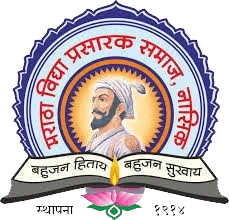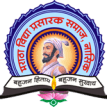Introduction To The Gandhi Research Foundation
The GRF is an international Centre for Gandhian study, research and dialogue. Its core objective is to preserve and promote Gandhiji’s philosophy and legacy based on truth, non-violence, peaceful co-existence and the spirit of conservation. The GRF has undertaken numerous initiatives to not only popularize Gandhiji’s life and principles, but also to preserve them for posterity.
The GRF is located at the Gandhi Teerth, Jalgaon(in northwesten Maharashtra, India), encompassing an international research centre, a monumental Gandhi museum, a library and modern archives.
At the GRF, applied acadmic courses such as the Post-Graduate Diploma in Gandhian Social Work focus on field training to inculcate leadership skills. Students are exposed to real life situations in selected villages where they are required to assess the field situation, conceptualize a response, design pertinent projects and execute them with a pro-people development objective.
The GRF also conducts a country-wide examination on Gandhiji’s contribution to India and the global community.
A quarterly magazine ‘Khoj Gandhiji Ki’ is published by the GRF, containing contributions by national and international authors.
Equipped with its own publishing wing, the GRF has already published literature (in Hindi and Marathi) relating to Gandhi and Gandhian topics which have been well received by an Indian readership.
• An annual certificate program to nurture and guide youth in line with the principles of peace and non-violence.
• As an informal value education program, conducted across India, its participants are encouraged to write and reflect on their understanding of Gandhiji’s teachings and ideals.
• The program is conducted in several languages.
• Program reading material is available in the form of books, and can also be accessed online.
• Participants studying in village schools are encouraged to enroll for the certificate program. There is a special focus on encouraging the participation of inmates from jails/prisons.
• This interactive course is designed by an Academic Council comprising eminent Gandhian thinkers and practitioners. The course content is updated annually.
• At the end of the course, an examination is conducted in each institution for which a certificate of participation is awarded; those who show greater understanding are presented with a medal.
• The program is conducted at individual campuses.
• The program started with 3876 students from one district of Maharashtra in 2007, and has now touched the lives of more than 12 lakh students from across India. It has also extended overseas to countries such as Japan and France.
• For this purpose, MOUs and academic collaboration have been established with 25 leading educational institutions, collectively comprising 6000 schools. The following is a select list of some of the institutions:
1. Rayat Shikshan Sanstha, Satara
2. Maratha Vidya Prasarak Samaj, Nasik.
3. Mahatma Gandhi Shikshan Mandir, Nasik.
4. Swami Vevekanand Shikshan Sanstha, Kolapur.
5. Marathwada Shikshan Prasarak Mandal,Aurangabad.
6. Sayadri Shikshan Sanstha, Savarde, Chiplun
7. Sarswati Bhuvan Shikshan Prasark Sanstha,Aurangabad.
8. Bharti Vidyapith, Pune.
9. Agriculture Development Trust, Baramati.
10. Mahatma Phule Shikshnik & Samajik Mandal,Chalisgaon.
11. Shri Shivaji Shikshan Santha, Amravati.
12. Shirpur Education Society, Shirpur.
13. Shri Shivaji Shikshan Santha, Barshi.
14. Kasturba Gandhi National Memorial Trust, Indore and others.
Maratha Vidya Prasarak Samaj’s Arts and Commerce College, Vadner Bhairav has actively Participated in Gandhi Vichar Sanskar Pariksha. College Student win Prize in year 2018-19, 2019-20
|
Sr. No |
Activity | Year |
View Report |
| 1. | Gandhi Vichar Pariksha | 2016-17 | View |
| 2. | |||
| 3. | Gandhi Vichar Pariksha | 2018-19 | View |
| 4. | |||
| 5. |

